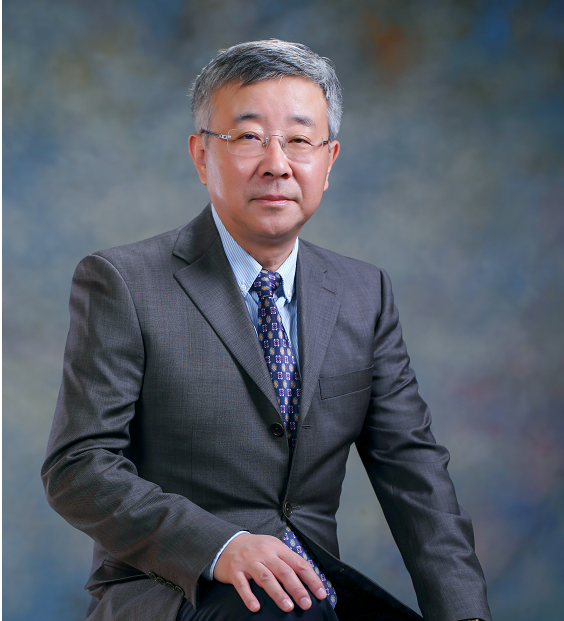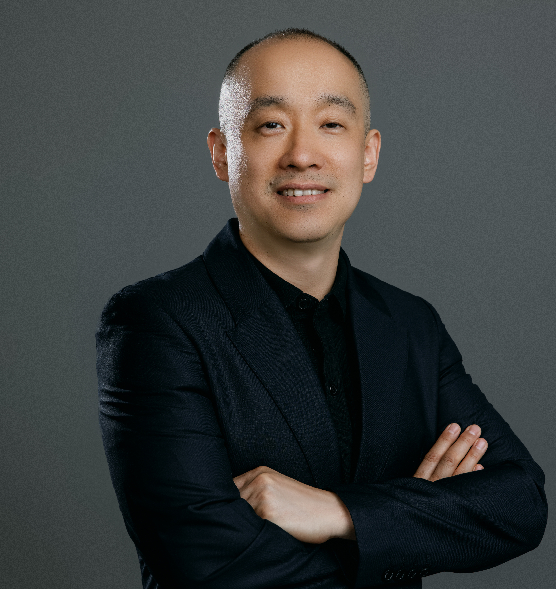Avistone steadfastly adheres to innovative research during the past decade, and partners with Beijing Tiantan Hospital to drive targeted therapy for glioma
Worthy of note is the collaboration between Beijing Tiantan Hospital, Capital Medical University and Avistone. They showcased a First-in-class product for the treatment of glioma - Vebreltinib (PLB1001). The operating mechanism and results of Phase I clinical trial (NCT02978261) of Vebreltinib were published in 2018 on the top international medical publication "CELL".
Vebreltinib was jointly developed by Avistone, an innovative target drug development enterprise, Beijing Tiantan Hospital, Capital Medical University and a team led by Professor Jiang Tao of Beijing Neurosurgical Institute. If Vebreltinib is proved to be effective in treating glioma indications, it will not only change the current state of clinical treatment for glioma but will also bring the treatment of glioma in China to an era of targeted-therapy.
01
Chinese scholars takes leadership in the era of new therapy
During an interview by E-Medicine, Professor Jiang said: "Glioma is arguably one of the hardest tumors to treat globally, not least because of its proximity to the human brain - there is a highest risk of incapacity from surgery and occurrence of epilepsy - as well as inconsistent sensitivity to radiotherapy and chemotherapy, not to mention its high rate of recurrence and low survival rate. At present, the main approach for treatment of glioma patients is to remove the tumor in as safe a manner as possible, followed by dedicated therapy. Regardless of the nature of the therapy - radiotherapy, chemotherapy or surgery - the brain will suffer a certain degree of damage. Judging by success cases for treatment of other types of cancer, targeted therapy looks to be the main current for treatment of glioma."

江涛教授 北京市神经外科研究所所长
首都医科大学附属北京天坛医院神经外科学中心主任 教授 博导
中国医师协会、中国抗癌协会脑胶质瘤专业委员会首任主委
主持制订国家卫生健康委员会《脑胶质瘤诊疗规范(2018版)》
"however, we have found an encouraging sign that the state is increasing investments in research on brain-related diseases on a top-down basis. In 2021, the Ministry of Science & Technology officially released on its website, a major project "Brain Science and Related Research" for Technological Innovation 2030. It also signified the initiation of "China Brain Plan" project which has been in the works for more than six years.
The partnership between Professor Jiang's team and Avistone first began with the discovery in 2014 of PTPRZ1-MET fusion genes in patients with secondary glioma. The research results were published on "CELL" journal in 2018, and in the same year, Vebreltinib prevision treatment for glioma was named "China's Top 10 Advances in Life Sciences in 2018" by China Association for Science and Technology. Later in 2021, Vebreltinib precision treatment for glioma was named "Champion of State-of-the-art Technological Innovation in Zhongguancun". All these are proofs of unanimous worldwide recognition of the scientific discovery, as well as proofs of the fact that clinical therapy can be driven forward by the research for Vebreltinib treatment for glioma and strategy of converting medical applications to clinical trials with clinical doctors working closely with innovative pharmaceutical companies." said Professor Jiang.
02
Serving humanity's heatlh with 10 years' research and continuous innovation
Vebreltinib is a First-in-class product developed and offered by Avistone for the treatment of glioma. Meanwhile, Vebreltinib is also being used in clinical trials for non-small cell lung cancer. Submission for launch is to be made soon.

创始人、彩票平台长、CEO石和鹏博士
As an innovative pharmaceutical enterprise, Avistone steadfastly espouses the idea of continuous innovation. With more than 10 years of persistent research, the company now possess several Category I drugs under research including Vebreltinib and Andatinib (PLB1004). It continues to devote its efforts in lung cancer and glioma, garnering impressive results, overcoming all sorts of difficulty.
About the time that Dr. Shi became an entrepreneur - 2012 - innovative drug research in China was still in its infancy and companies like Beigene, Innovent Biologics and Junshi Biosciences had just been established. The reality was that many Chinese pharmaceutical companies were reaping the rewards of individual generic drugs. Armed with more than a decade of experience in the industry, Dr. Shi instantly realized the immense opportunities offered to innovative drug research. "Patients' needs and development of scientific research would truly drive advances in medical science. We have always embraced a dream, and that is to drive commercialization of drugs through an innovative drug research platform. This would be our contribution to the pharmaceutical industry and the people."
Leading an innovative pharmaceutical company had its benefits for Dr. Shi. "When we saw how patients who used drugs developed by us during clinical trials obtained longer survival period, relieved from pain, reduced tumor and increased appetite, the sense of achievement and satisfaction gave us immense pride and motivation."
From the time he co-founded the company till now, Dr. Shi witnessed the homogeneity of research in China for targeted drugs. Despite this he soldiered on with his vision of developing Vebreltinib for the treatment of glioma, said to be one of the hardest diseases to be treated with very research participants. Today, his company is at the forefront of the industry.
According to Dr. Shi, as Avistone continues to garner greater experience in the conversion of medical science, it will leverage on its advantages with respect to Vebreltinib and expand its application to other types of cancer.
03
Steadfastly strengthening itself in a steady pace
Avistone's efforts and achievements in the field of glioma treatment have been duly recognized in the market, with timely injection of funds helping it to overcome challenges. The end of 2021 saw Avistone completing its Series A financing of over $200 million, supported by leading investment funds like Vivo Capital, Bain Capital and PrimaVera. The funds raised provided ample "ammunition" to Avistone for follow-up research on relevant products as well as subsequent initiatives.
Look back Avistone's growth path during the past decade, Dr. Shi said the hardest was not the challenges to be overcome during project research but was, as a manager, to galvanize the company's team members with external forces so as to remove differences and withstand temptation. In this way, the company's employees could keep their original intention and steadfastly move towards its long-terms goals with respect to continuous innovation.
Thanks to such steadfastness, Avistone was able to take matters one step at a time to become what it is today. Suffice it to say that today Avistone has in its portfolio of products, numerous drugs under research for lung cancer and glioma. Dr. Shi disclosed that "insofar as it relates to innovative drug research, what matters are the products' effect and research efficiency. In this regard, Avistone has adhered to two concepts: one is to be "First-in-class" in a hitherto-unexplored field, and the other is to strive to be "Best-in-class" where there are already 2-3 competing products. Our aim is to improve patients' living quality using high-quality innovative drugs."
Following the launch of Vebreltinib, Avistone has doubled its pace with respect to its commercialization as well as the launch of new products. Avistone will leave no stones unturned whether it is with regard to clinical research, product commercialization or overseas expansion. Dr. Shi stressed, "It is extremely challenging to undertake biotech or biopharm in China. Every aspect of innovative drug research must be met with head on. Any failure to do so would cause us to play catch-up."
At the moment, product commercialization in the domestic market and overseas expansion are the most important tasks for Avistone, seeing that they are the key to the company's ability to reinvent itself. This attitude is what sets Dr. Shi apart from other biotech enterprise founders. Although he graduated from Peking Union Medical College, Dr. Shi has since embarking on an entrepreneurial path, insisted on being an entrepreneur and not a mere scientist. Dr. Shi firmly believes that an enterprise does not only need to embrace its mission and vision, but also needs to know how to survive and grow. Successful commercialization can give good cash-flow to the company and support its research of more complex, riskier drugs, and success in the latter will generate a virtuous cycle for the operation.
So what should a company do with respect to commercialization of its products? Many of the biotech companies in China are entering the commercialization phase, and they are just beginning to meet practical challenges. Quite a number opted for the "easy" path, by licensing their products, or alternatively partnering with large pharmaceutical companies. However, Avistone has opted for the road less taken: build its own commercialization team. This seems to be harder road, but Dr. Shi took the view that for an innovative drug enterprise incorporated in China, "commercialization is an inevitable, essential process for corporate growth, and once it is accomplished, it will become part of the company's core competitiveness."



